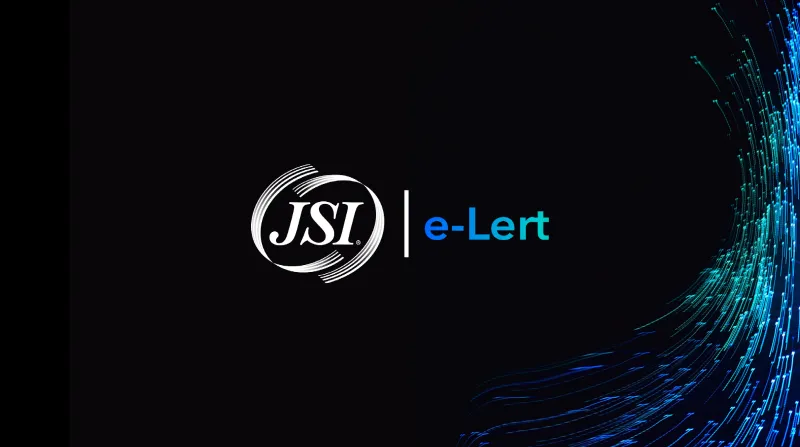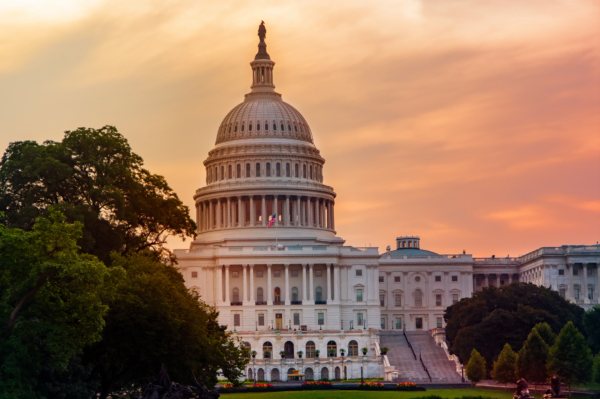
States Seek Comment on BEAD & ACP Program Updates & Deadlines

States Seek Comment on BEAD
Recently, Georgia and Kansas released Congressionally-mandated five-year plans for distributing their shares of $42.5B in federal Broadband, Equity, Access and Deployment (BEAD) broadband funding. This represents a critical opportunity for small and independent broadband providers to lend their voices and communicate their unique roles in deployment to the most difficult-to-serve areas. JSI urges its clients to consider ways to advocate for the most favorable position in these generational funding programs.
Georgia
On August 10, 2023, the Georgia Office of Planning & Budget (OPB) released its Five-Year Action Plan for allocating the state’s estimated $1.3B share of BEAD funding. The plan includes a comprehensive statewide broadband needs assessment and establishes Georgia’s plan to provide all residents with robust, high-speed Internet connectivity. The plan inventories broadband deployment, adoption and access resources and identifies challenges and gaps. OBP focuses on barriers posed by right-of-way and pole access issues, regulatory obstacles, and labor shortages and supply chain issues. The plan includes next steps for implementation, including stakeholder engagement, development of public/private partnerships and workforce training, and outreach on Affordable Connectivity Program (ACP) assistance. Georgia providers should review the plan, compare it with their current buildout “pain points,” and offer ideas in written comments and meetings with state broadband officials about how BEAD funding should be focused to address these limitations.
Kansas
Kansas’s Office of Broadband Deployment (OBD) released Volume I of its Initial Proposal for BEAD funding on August 2, 2023. The state is expected to receive $451M in BEAD grants. Volume I summarizes existing Federal, state and Tribal broadband funding sources, outlines Kansas’s identification of unserved and underserved locations, and describes community anchor institution engagement and a proposed challenge process. Comments on Volume I are due on August 30, 2023 at 5:00 pm (CDT). OBD will release Volume II of its Initial Proposal (addressing subgrantee/provider selection criteria) at a later date. Kansas providers should review the Initial Proposal to identify discrepancies in the state’s designation of unserved/underserved areas and should consider whether the proposed challenge process addresses their needs.
How Independent Broadband Providers Should Get Involved
BEAD is the largest grant program JSI has seen to date and given political realities, could be the last one of this nature. The most effective way for rural providers to persuade the states toward favorable grant requirements is by filing comments and participating in meetings with state broadband staff. With six states and territories with active comment cycles, JSI can alert you when your state’s cycle becomes active so you can share your current buildout “pain points” and offer ideas about how BEAD funding can address those pain points. You can also raise any discrepancies with the state’s designation of unserved/underserved areas and share your reactions to the proposed challenge process.
JSI can help your company file individual or joint comments with other JSI clients to ensure that your state broadband office understands the importance of crafting BEAD guidelines to incentivize and maximize small and rural provider participation given their unique challenges.
BEAD is an excellent opportunity for rural and independent broadband providers to diversify and grow their revenue base and combat market trends likely to deteriorate margins in the future. JSI’s High-Level BEAD Assessment will help your company determine the overall feasibility and potential financial benefit through mapping, financial modeling, and business analysis.
If you would like JSI to add you to our State tracking and notification list, file comments on these plans, or conduct a BEAD assessment, please contact Amanda Molina, Senior Director – Business Development; Jackie McCarthy, State Policy Lead; or Dave Lewis, Vice President – Product Development & Strategic Initiatives, either by clicking the button below to connect with them by email or by calling 301-459-7590 during normal office hours.
ACP Program Updates & Deadlines
FCC Announces the Inaugural Affordable Connectivity Program (ACP) Transparency Data Collection Annual Filing Window
The FCC announced the filing window for the ACP Transparency Data Collection requirement, which opens on September 8, 2023 and is due no later than November 9, 2023. ACP providers will need to submit data reflecting its internet service offerings’ prices and subscription rates using USAC’s online ACP Transparency Data Collection System (ACP Data System).
To submit data in the ACP Data system, companies will need to access the Universal Service Administrative Co. (USAC) One Portal. Either the 497 Officer or 497 Agent can submit or update data and mark the submissions as “Ready for Certification.” However, only the 497 Officer can certify or reject plans. 497 Officers and Agents cannot make submissions or revisions in the system once the 60-day submission window closes. To make revisions or changes after the filing window closes, companies must email ACPDataCollection@FCC.gov. FCC Staff will manually open the system, after which companies will have 30 days to submit or revise the data.
As JSI previously reported, the FCC established the ACP Transparency Data Collection on November 23, 2022. Additional information regarding this new requirement is available on the USAC website under ACP Annual Requirements.
Affordability Connectivity Program National Verifier Website and ACP Support Center Address
The National Verifier portal has changed from nv.fcc.gov to GetInternet.gov and in Spanish at AccedeaInternet.gov. Access to nv.fcc.gov will shut down at the end of August.
The ACP Support Center has changed the Post Office Box address to: ACP Support Center, P.O. Box 9100, Wilkes-Barre, PA 18773-9100. ACP providers should update their consumer outreach to reflect these changes.
FCC Establishes the Requirements for the ACP Enhanced Monthly Benefit of up-to $75 for Eligible Households in Certain High-Cost Areas
On August 3, 2023, the FCC adopted an order to provide an ACP enhanced monthly benefit of up to $75.00 for eligible households in certain high-cost areas. Providers will need to demonstrate a “particularized economic hardship” in continuing to maintain part or all of their broadband network in a high-cost area to receive this benefit. The high-cost areas are determined by the National Telecommunications and Information Administration (NTIA) and correspond with the high-cost service areas established for the Broadband Equity, Access, and Deployment (BEAD) grant program. This enhanced benefit is intended to encourage new providers and reinforce existing providers participation in the ACP.
The enhanced benefit is limited to facilities-based providers who can demonstrate economic hardship in only receiving the standard subsidy of up to $30.00 to maintain part or all of their network. Interested ACP providers will need to submit an affidavit accompanied by their most recent income statement. They must also demonstrate economic hardship on an annual basis.
The FCC order directs USAC to manage the submission process, which will include certification from a company officer that the provider will comply will all rules and regulations for the ACP. During the submission process, providers will need to confirm whether the company applied for federal financial assistance within three fiscal years prior to applying for the enhanced benefit and upon request, provide associated documentation.
The FCC directs the Bureau to release a Public Notice within 90 days of NTIA’s determination of high-cost areas to announce when providers can apply to offer eligible subscribers the enhanced benefit of up $75.00.
JSI encourages current ACP providers and those companies interested in becoming ACP providers to fully understand the ACP regulations and requirements. Please visit JSI ACP Compliance or contact Lans Chase or Dounia Chikhoune for information about the ACP program or assistance.









